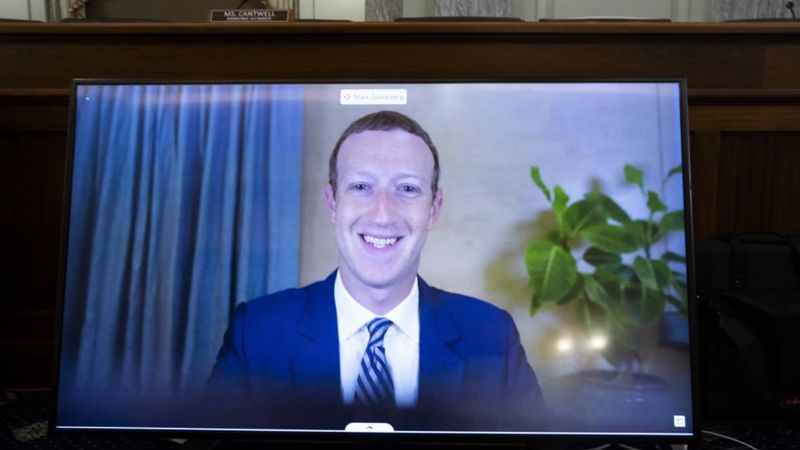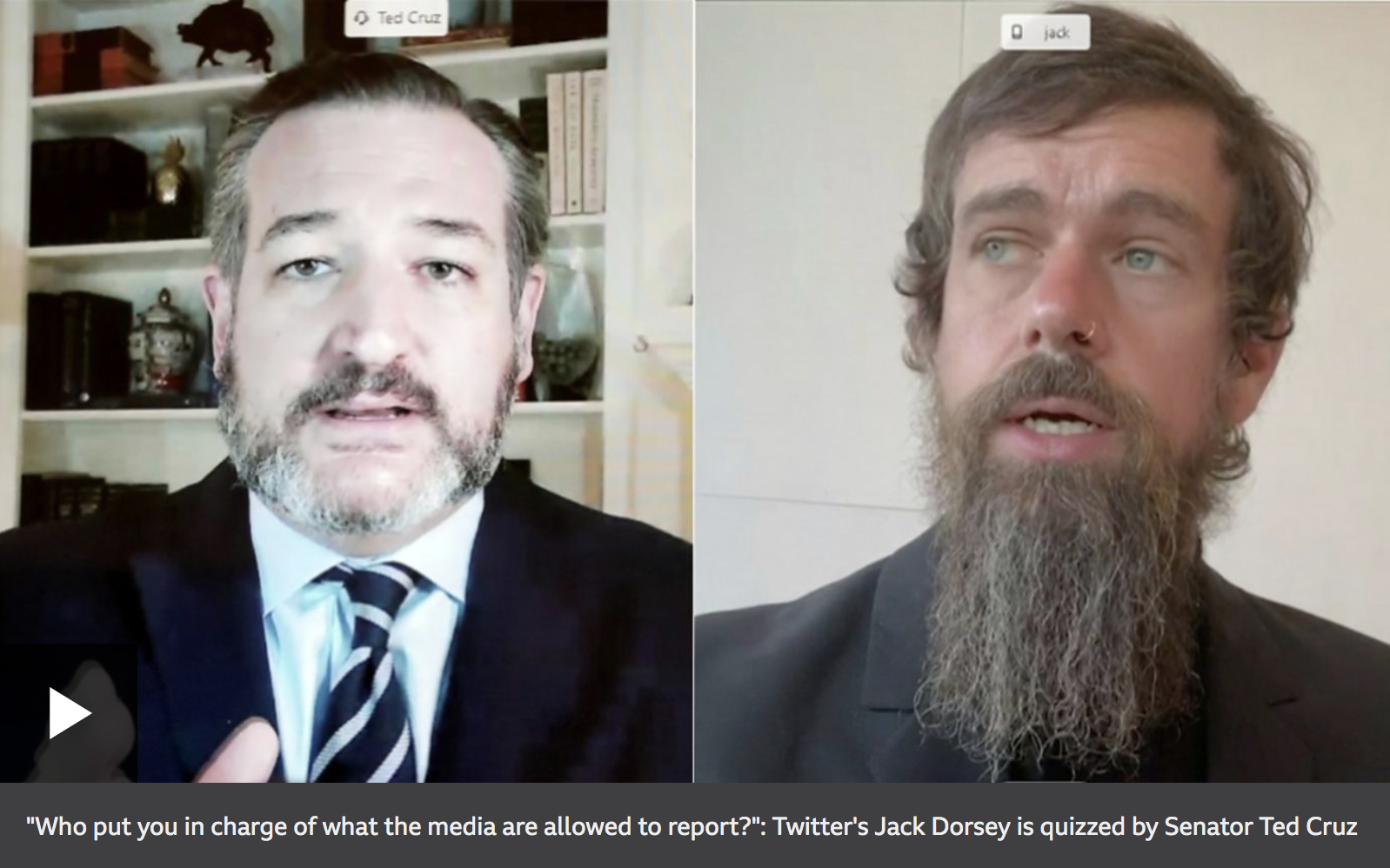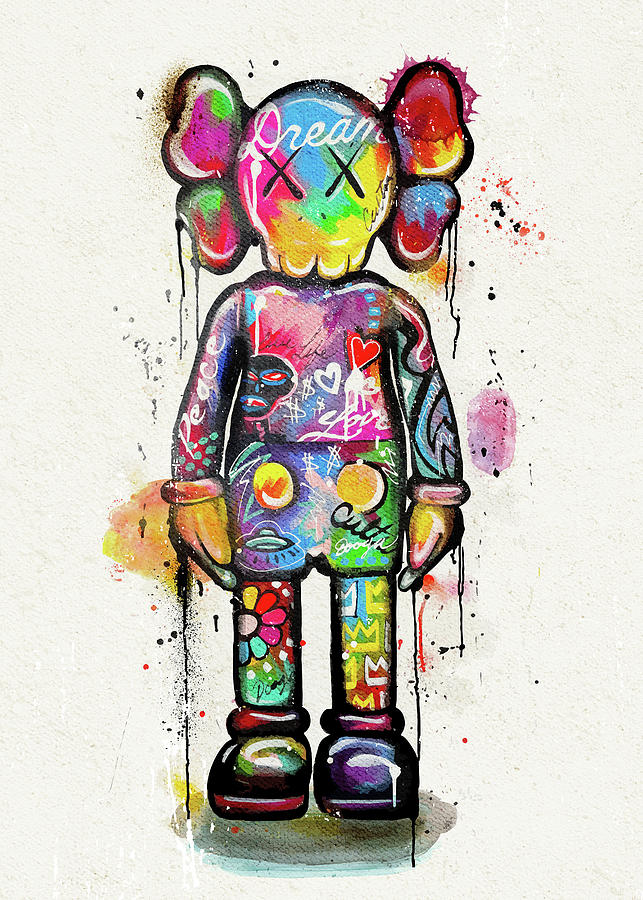The Chief Executive Officers of Facebook, Twitter, and Google endured over three hours of questioning from US Senators on Wednesday afternoon.
Facebook’s Mark Zuckerberg, Twitter’s Jack Dorsey and Google’s Sundar Pichai were summoned before the Senate after both Democrats and Republicans agreed to call them in for questioning over platform censorship.

The session was comprised of questioning the tech giants of their censorship of user’s posts on the platform and the loophole in section 230 that these companies have used to censor posts from users based on their likes or dislikes.
What is Section 230?
Section 230 is the main legal protection preventing social networks being sued.
It means websites themselves are not generally responsible for illegal or offensive things users post on them.
They are treated as neutral middlemen – like newspaper sellers rather than the editors that decide what goes in the paper.
Originally seen as a way to protect internet providers such as BT or Comcast, it has become the main shield for huge sites such as Facebook, Twitter and YouTube, which cannot possibly review every post from their users before publication.
But politicians say Section 230 is outdated.
Democrats take issue with the spread of lies online without consequences for the sites.
Republicans say big tech is using its moderation powers to censor people it does not agree with – making editorial calls rather than staying neutral.
And both sides agree they want to see the social networks held accountable.

Mr Dorsey told the committee Section 230 “is the most important law protecting internet speech” and its abolition “will remove speech from the internet”.
But he found himself faced with pointed questions over the implementation of Twitter’s policies about what it removed or labelled misinformation.
Mr Zuckerberg, meanwhile, revealed a “private meeting” with the FBI had warned firms to be wary of leaked material.
He said that Facebook, and he “assumed” the other companies, had been warned about a possible “hack and leak operation in the days or weeks leading up to this election”.
The FBI “suggested that we be on high alert and sensitivity, that if a trove of documents appeared that we should view that with suspicion that it might be part of a foreign manipulation attempt,” he said.
On Section 230, Mr Zuckerberg told the committee Section 230 encouraged free expression and “helped create the internet as we know it”.
But he added: “The internet has also evolved.
“And I think that Congress should update the law, to make sure that it’s working as intended.”
Mr Pichai, though, fiercely defended the law.
“Our ability to provide access to a wide range of information is only possible because of existing legal frameworks like section 230,” he said.
“The United States adopted Section 230 early in the internet’s history.
“And it has been foundational to our leadership in the tech sector.”
